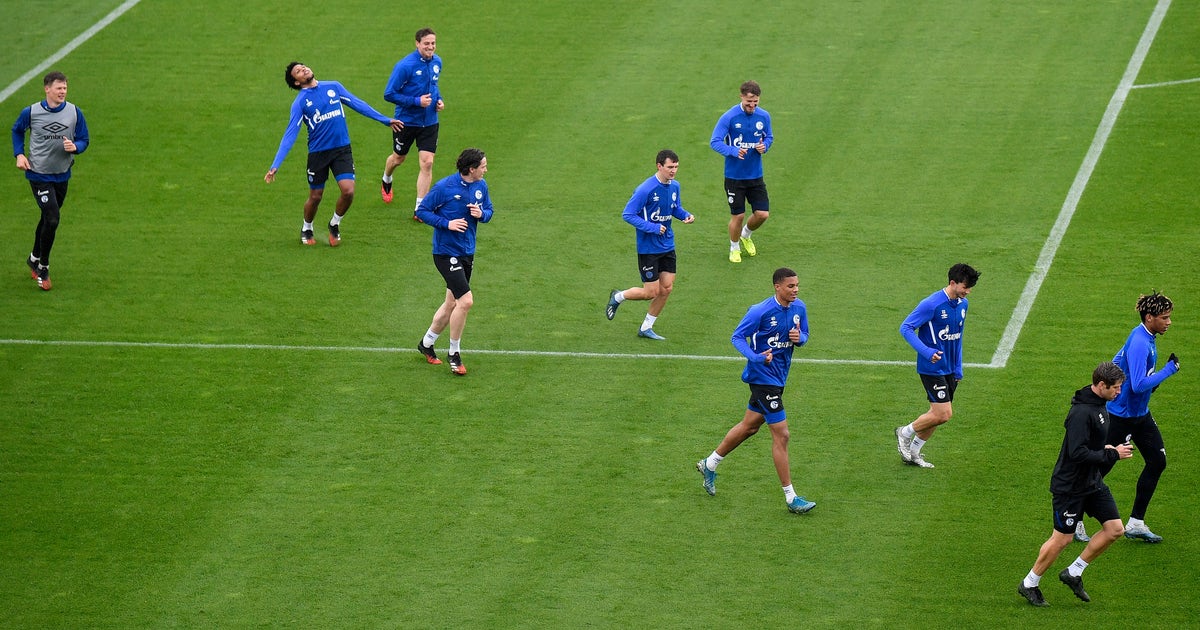Across Europe, ideas differ over whether leagues can resume


England is scrambling to find a solution to the billion-pound question: How to restart the Premier League?
However, the competition with the most to lose financially if the season is abandoned is unlikely to see a clear path forward if it looks across to its European counterparts.
So far, European countries have taken very different approaches to getting sports up and running again amid the coronavirus pandemic.
The French and Dutch leagues have been canceled in the last week after orders from the government.
Players in Italy can train again from next month but the government has started to express unease about Serie A resuming.
Spanish authorities, too, are wary about players gathering on pitches too soon.
Of the major European men’s leagues, only Germany is accelerating a plan to get the Bundesliga back underway — potentially inside two weeks. Switzerland’s government said Wednesday that teams will be allowed to start training again on May 11, with the hope of games starting up in June in empty stadiums.
Even then, medical experts are warning that playing games without fans does not eliminate the risk of COVID-19 being spread by the hundreds of people still required inside stadiums.
“There are real worries about infection risks,” Jonas Baer-Hoffman, general secretary of global players’ union FIFPRO, said Wednesday. “There are worries about what that means for their families and friends that they engage with. They are worried very much that they represent something in society that might give a bad influence.”
Leagues have until May 25 to tell UEFA how they plan to complete or curtail the 2019-20 season.
Ultimately, any decision depends on the status of the national lockdowns, which halted leagues across Europe in March as governments tried to contain the pandemic.
“We are planning on trying to squeeze in the rest of the season,” Lars-Christer Olsson, president of the European Leagues body, said Wednesday. “We have problems with this big uncertainty … and when it comes to decisions made in the different countries, by the different authorities.”
“Project Restart” is the Premier League plan being worked through with the government ahead of a conference call with clubs on Friday. The league has already warned politicians that the competition is facing losses of more than a billion pounds ($1.3 billion) if the season cannot be completed — mainly due to the need to fulfil the most lucrative television contracts in world football.
The Premier League has an optimistic aspiration to resume the season on June 8, with leader Liverpool 25 points clear with nine games remaining.
Arsenal and Tottenham are among the clubs starting to re-open their training facilities this week for individual work on pitches as players try to get back into shape.
“There are big prizes up for grabs and huge economic loss that’s going to be incurred,” said former Manchester United defender Gary Neville, who is now co-owner of fourth-tier professional club Salford City and a Sky Sports broadcaster. “It does cloud minds, in terms of the level of risk people are willing to place on lives in order for the return of football.”
Some clubs wanted the season to be declared null and void but the Premier League and three lower leagues are determined to finish the season.
The Premier League has an optimistic aspiration to resume the season on June 8, with leader Liverpool 25 points clear with nine games remaining.
A variety of plans for the league restarting have been swirling around — from squads and coaching staff isolating together to only a small number of stadiums being used.
The police see the benefits of games being at a neutral venue to minimize disruption to emergency services.
“Playing all those fixtures (in the original stadiums) would present challenges — that’s an awful lot of people moving around the country,” said Mark Roberts, who heads football policing in England. “The police, the ambulance service and all those other functions that are going to be stretched.”
One of the key challenges across Europe is securing and funding enough COVID-19 tests to test thousands of people a week around training and matches to protect players and support staff.
The Spanish league wants daily testing of squads and coaches, a plan that the players’ association has objected to as long as tests are scarce among the general public. The government is allowing players to resume training next week, although the sports minister has cautioned games might not be allowed before the summer
French plans to restart Ligue 1 ended when the prime minister on Tuesday announced a ban on all major sporting events until September — a decision that startled the Spanish league.
“I do not understand why there would more danger in playing football behind closed doors, with all precautionary measures, than working on an assembly line,” La Liga President Javier Tebas said. “If important economic sectors cannot restart, in a safe and controlled manner, they could end up disappearing. That could happen to professional football.”
But Italian Sports Minister Vincenzo Spadafora said the French cancelation of the season “could push Italy and other European countries to follow that line.”
Serie A teams are holding an emergency meeting on Friday and Spadafora said he doubts there will be enough resources to carry out the necessary COVID-19 testing.
“I see the path to restarting Serie A getting ever narrower,” Spadafora said. “Resuming training is an important sign but if I was among the presidents of the soccer teams I would be thinking about next season.”
In the Netherlands, legal action is already being prepared by at least one topflight club — FC Utrecht —- after last week’s decision to cancel the remainder of the season and base the final league standings on current point totals.
UEFA initially insisted in early April that leagues should not prematurely abandon the season but is now giving flexibility to adopting a “different format” like playoffs to determine the final standings that feed into European qualification.
This season’s quarterfinals of the Champions League and Europa League are yet to be played, but UEFA is giving domestic competitions priority.
“In full respect of local legislation, it is definitely possible to plan the restart of competitions suspended during the 2019-20 season,” UEFA medical committee chairman Tim Meyer said.






